An old adage states; "the more you know, the less you understand". How true this is when it comes to exploring the mysteries of the Big Bang. For centuries, astronomers and astrophysicists have been attempting to unravel the origin of our universe in order to gain a greater understanding of its structure, dynamics and evolution. As we continue down this path of discovery, I'm determined to share my findings and experiences with those who seek knowledge through an exploration that is both comprehensive and engaging.
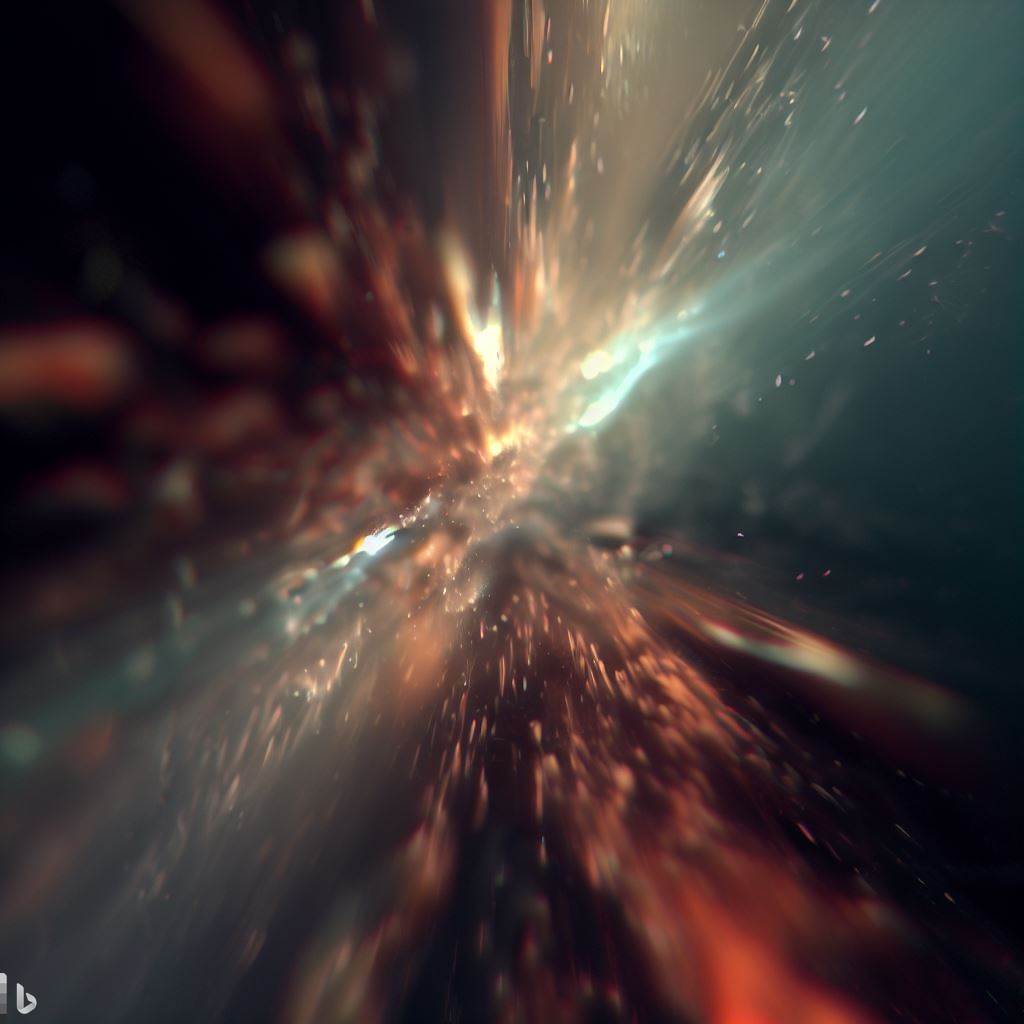
At its core, the Big Bang theory explains how our universe began as one incredibly dense point some 13.7 billion years ago – known as singularity - before exploding into existence and continuing on its journey ever since. By delving deeper into this phenomenon however, we can explore what lies beneath these initial moments by examining evidence from multiple perspectives such as particle physics, cosmological observations and mathematical equations. In doing so we will be able to better comprehend not only how our universe came into being but why it behaves the way it does today.
Throughout this extensive investigation, I hope to provide readers with a sense of freedom while connecting their subconscious desire for knowledge with actionable insights they can use in their own lives. Through consistent research updates informed by personal experience as well as interviews with esteemed members within the field, I am confident that together we can unlock all the secrets behind The Big Bang.
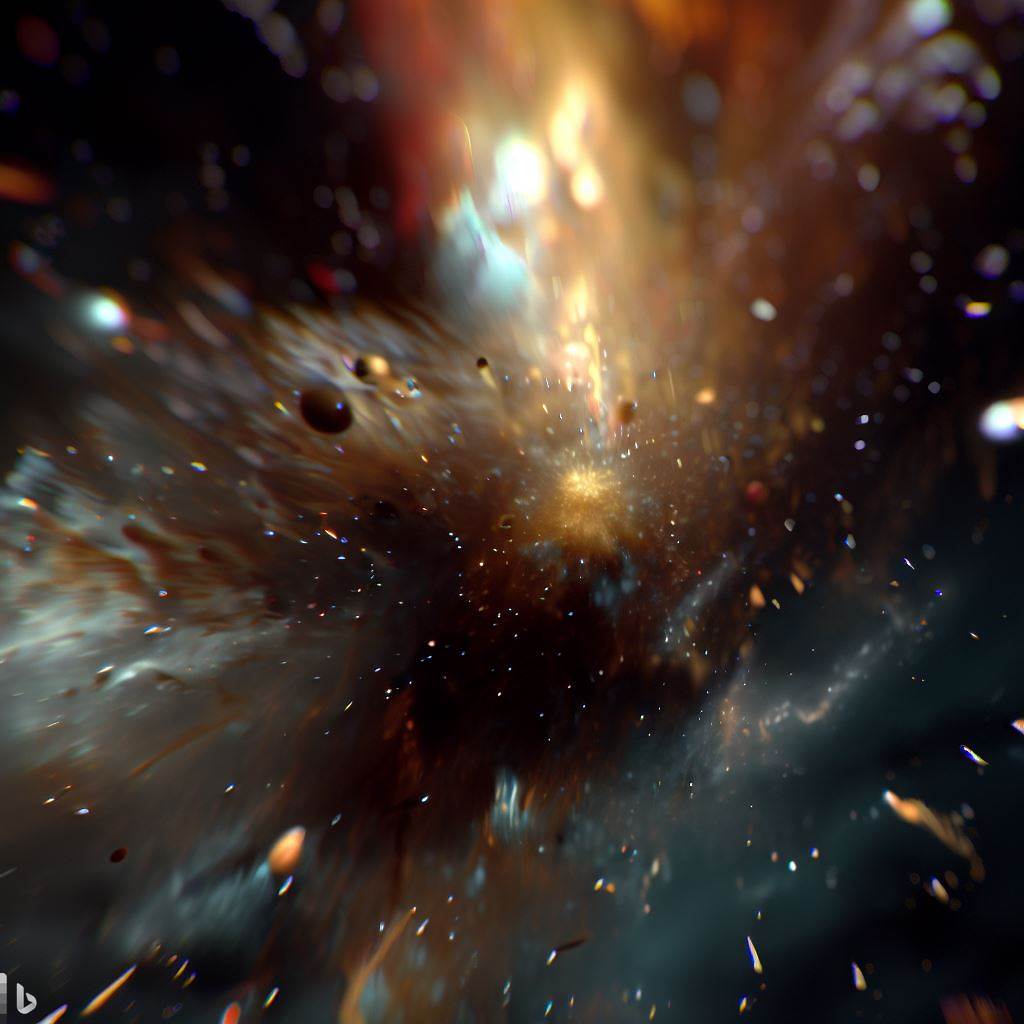
The Big Bang Theory Defined
I'm sure you've heard of the Big Bang theory - that moment when our universe was created. But what exactly is it? Let's explore what this big bang definition entails and how science explains its origin.
The Big Bang Theory, as we know it today, states that all matter in the universe originated from a single point or singularity some 13.8 billion years ago. This initial spark then caused an expansion of space-time which eventually led to the formation of galaxies, stars, planets, and other celestial bodies. The idea behind this theory comes from observations made by astronomers who noticed that distant galaxies are moving away from us at speeds proportional to their distance from Earth. This phenomenon is known as "redshift" – light emitted from these galaxies is shifted towards longer wavelengths due to the Doppler effect caused by their motion relative to us. As such, scientists have been able to extrapolate backwards in time to infer the existence of an event responsible for initiating this movement of matter away from us into outer space: thus giving birth to the concept of the Big Bang!
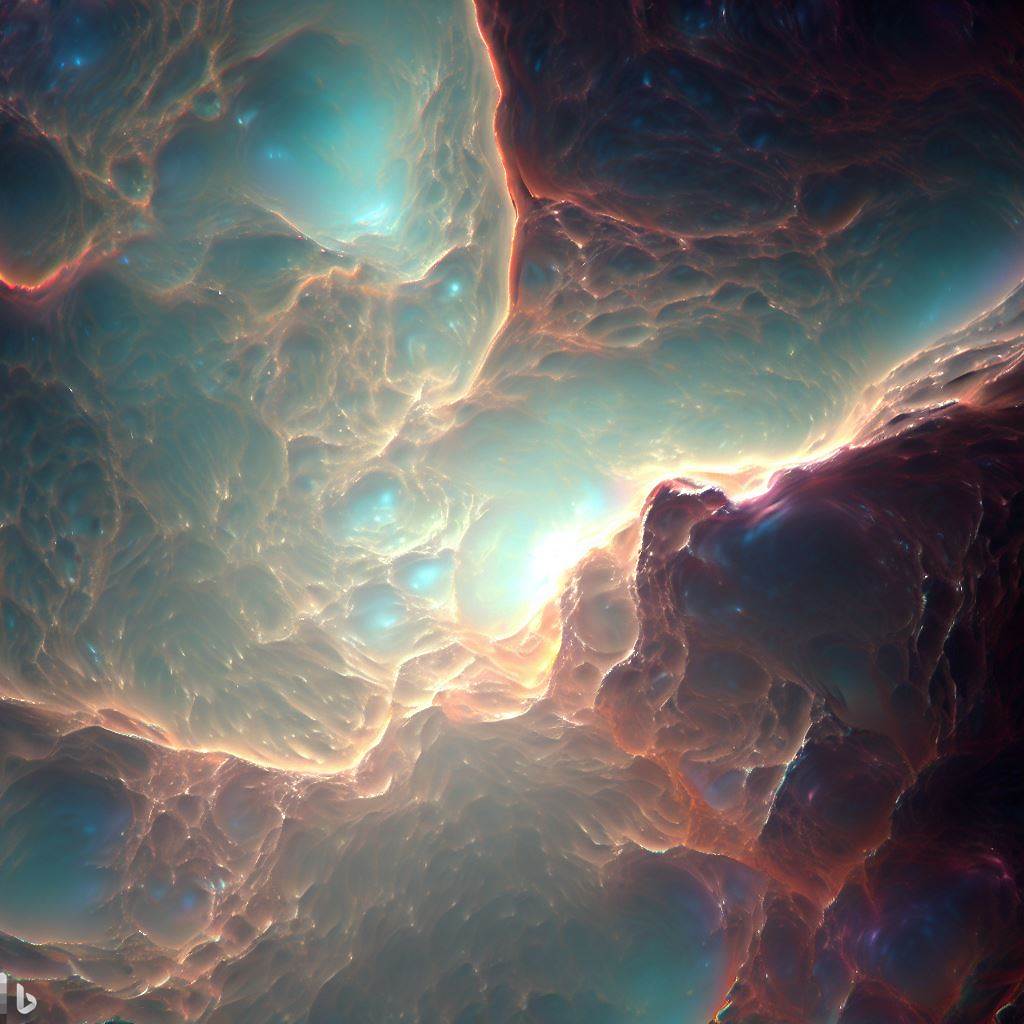
But where did this Big Bang come from? It has been theorized that prior to the explosion there existed a state of infinite density and temperature referred to as a “singularity” – a mathematical point with no physical properties or dimensions whatsoever. In order to explain its origin further we must delve deeper into the realm of quantum mechanics and cosmology; however, suffice it say that whatever triggered this primordial eruption continues to remain a mystery even today! With that said, let's move on now and discuss the timeline of events following this monumental event...
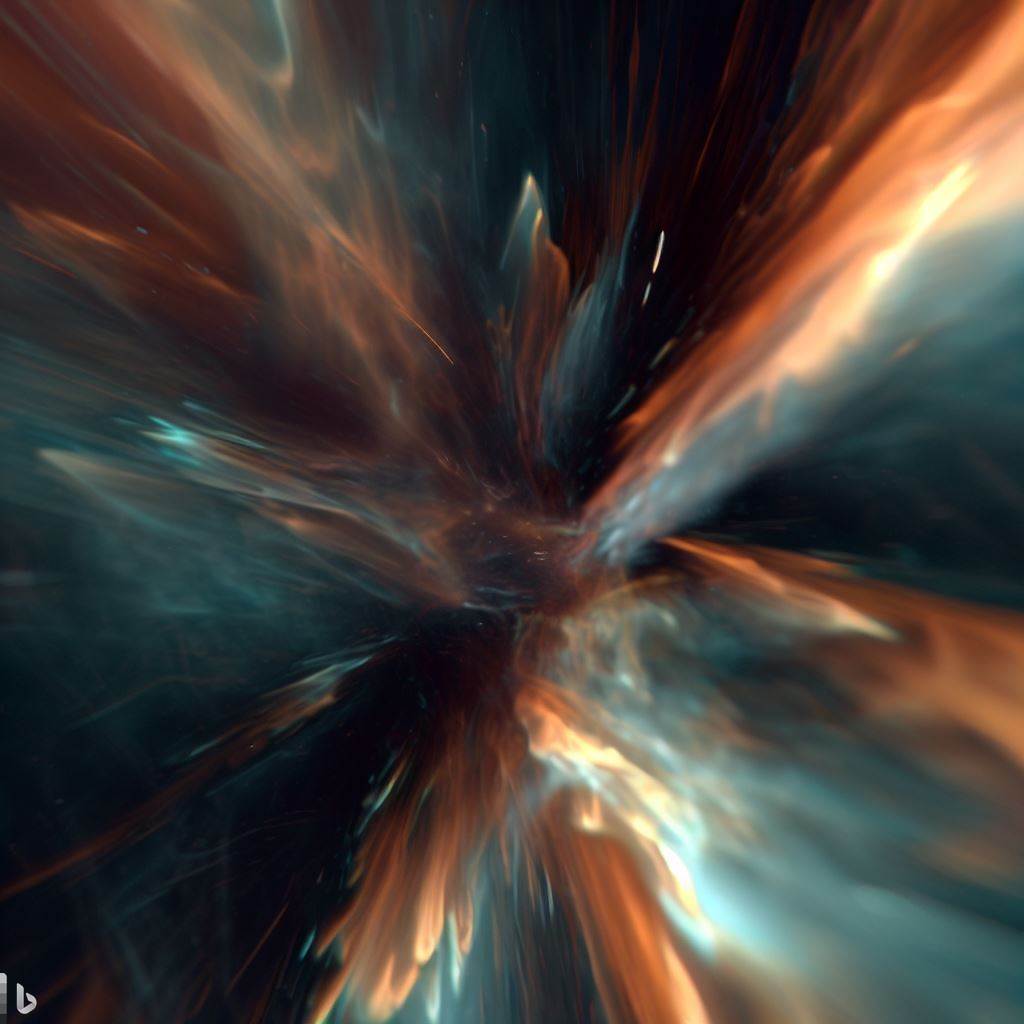
The Timeline Of The Big Bang
Take the Hubble Ultra Deep Field for example. This incredible image was captured by NASA's telescope and provides a window into what our universe looked like 13 billion years ago - near the beginning of time itself. It is no surprise then that one of the most captivating mysteries we have ever encountered is uncovering the timeline of the Big Bang, from its earliest moments to today.
When it comes to cosmology, understanding how everything works starts with looking at its history. To truly understand the big bang timeline, we must go back billions of years in time when all matter and energy were compressed into an unimaginably tiny space. What followed was a rapid expansion known as inflation theory, which propelled galaxies, stars, planets and other objects through vast distances across the cosmos.
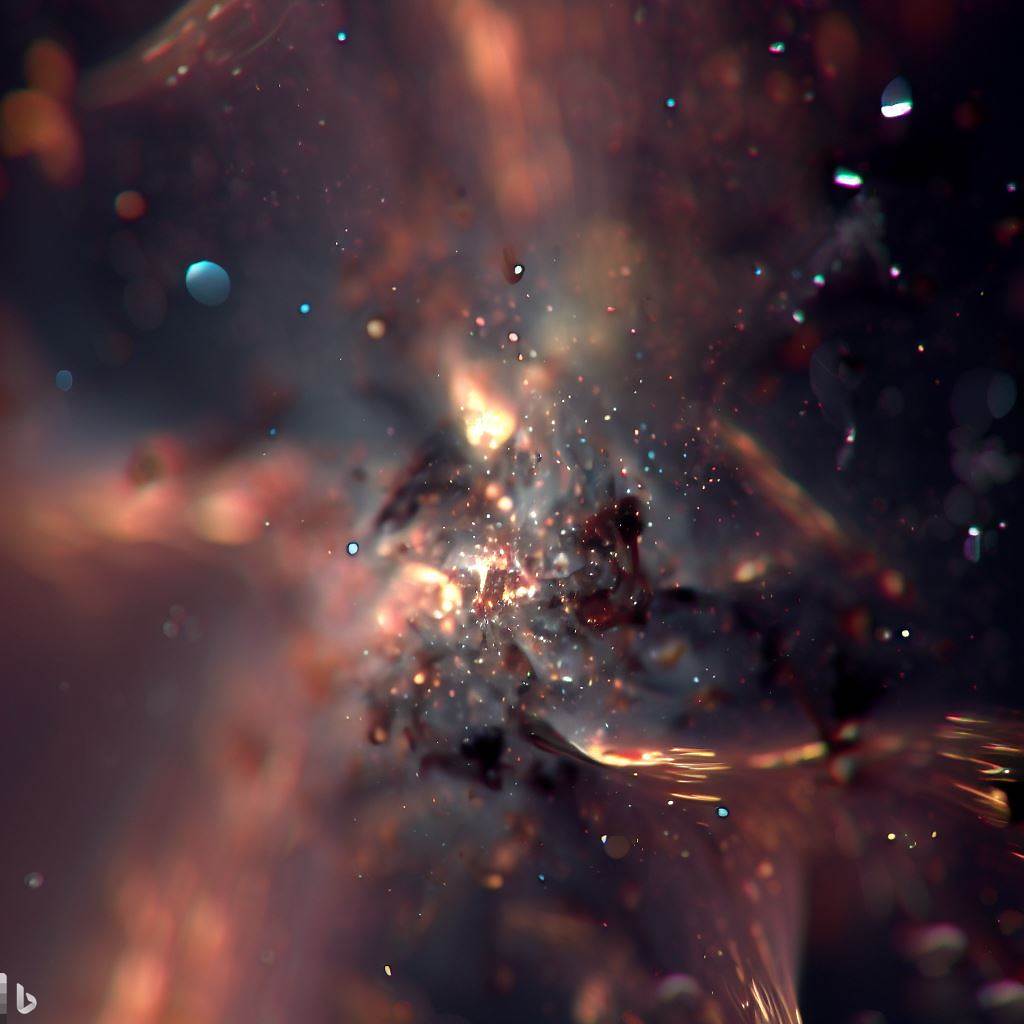
The next step along this timeline is called recombination; when protons and electrons combined together to form atoms such as hydrogen and helium. By studying these light elements in great detail, astronomers can gain insight into some of the oldest structures in our universe and make predictions about what came before them. With further exploration into this topic, researchers are continuing to unravel more about this ancient period of cosmic evolution with new research and discoveries on current theories surrounding dark matter and dark energy.
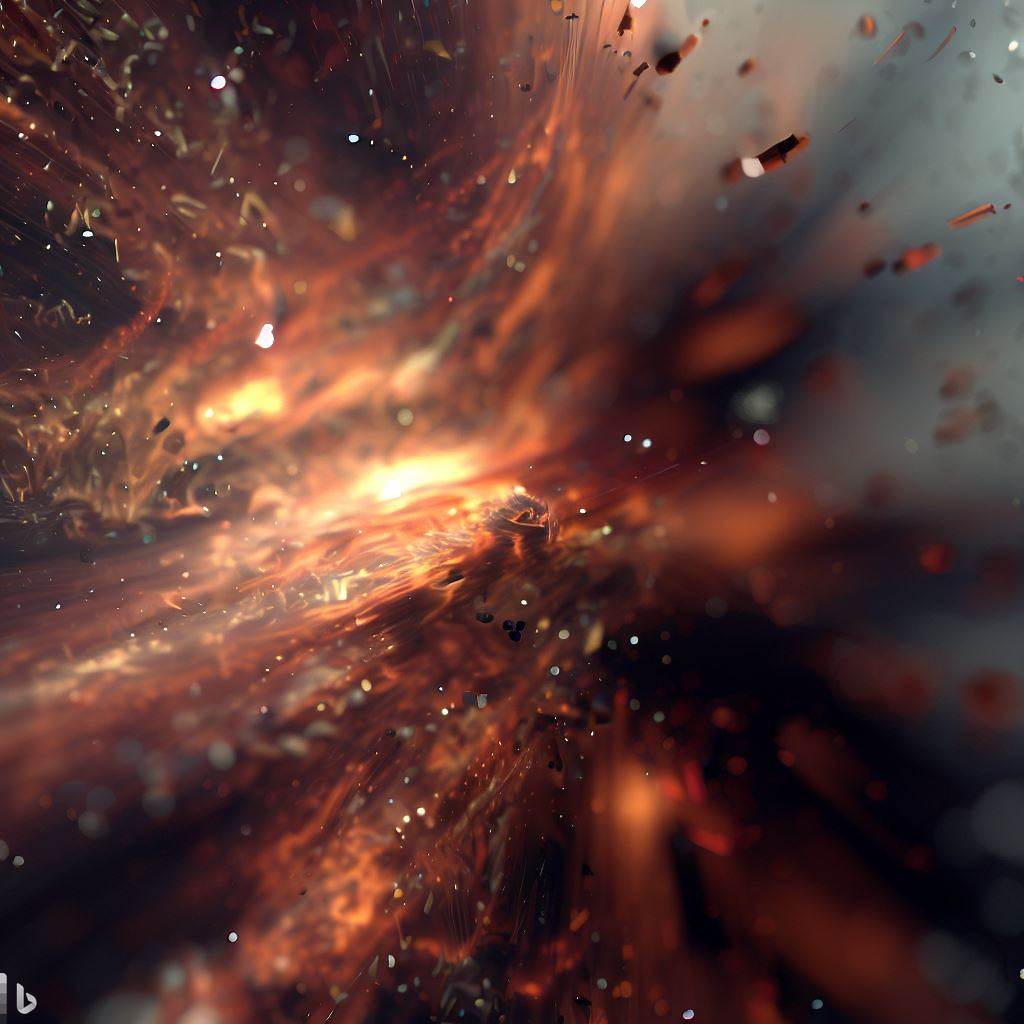
Current Research And Discoveries
Exploring the mysteries of the Big Bang has been a mesmerizing journey for researchers and scientists alike. Through their tireless efforts, we are learning more about our universe every day. Cosmological research has enabled us to uncover evidence that supports the big bang theory and provides insight into cosmic discoveries.
The current efforts in universe exploration have revealed an array of physical phenomena that provide further confirmation of the big bang scenario. From gravitational waves produced during inflation to various elements created shortly after its beginning, theorists are able to identify patterns in these observations that help shape our understanding of the early Universe. Additionally, recent developments in particle physics such as string theory offer a potential explanation for “theory of everything”: a unified description of all particles and forces within nature which could explain why our universe exists as it does today.
These findings have given us new tools with which to explore space-time and understand how it evolved over time. As researchers continue to chip away at this grand endeavor, they will no doubt make groundbreaking revelations regarding the origins of the cosmos that could forever alter our perception of reality and lay the groundwork for future generations to unravel even more secrets hidden within its depths. We now turn towards examining the impact that these theories have had on science and philosophy throughout history.
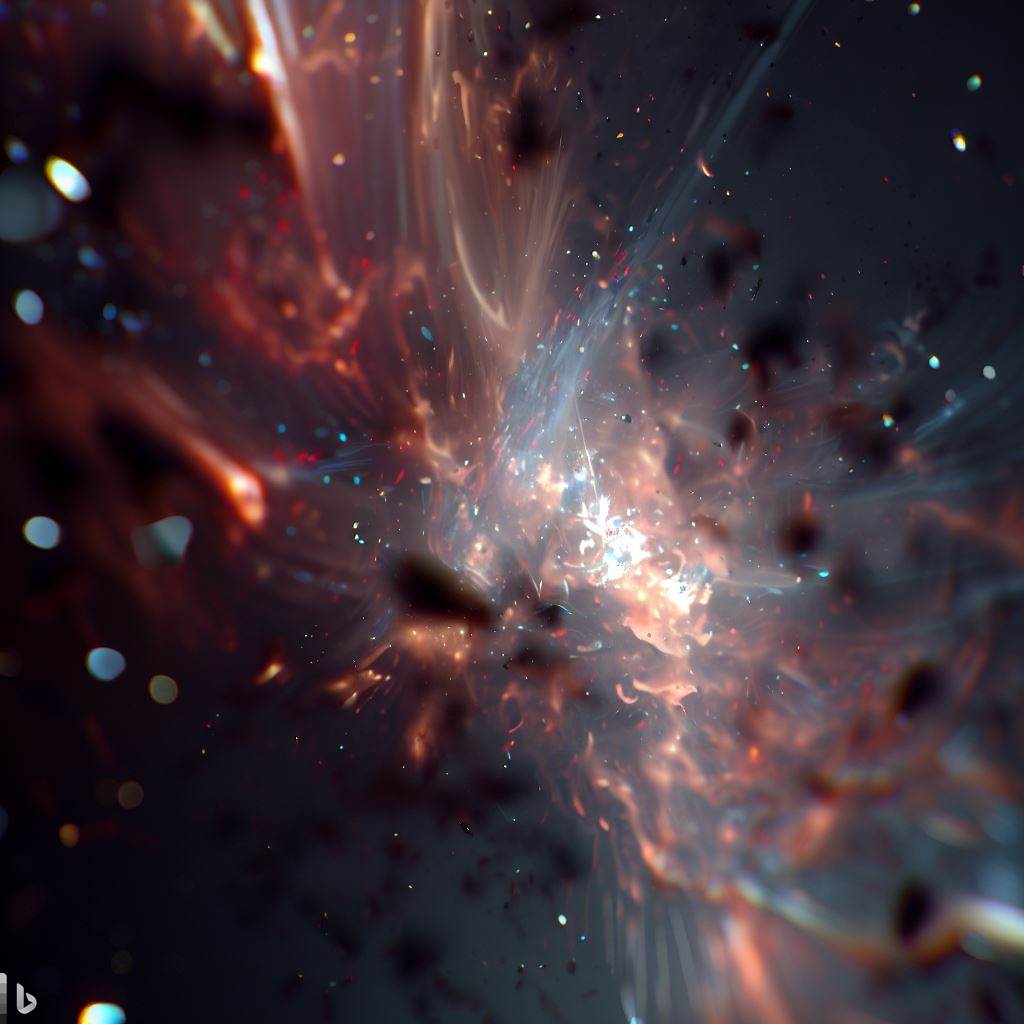
The Big Bang Theory's Impact On Science And Philosophy
The Big Bang Theory has revolutionized cosmology and science, leading to a number of implications for our understanding of the universe. This theory's impact extends beyond merely scientific discussions; philosophical debates have also been sparked by this revolutionary idea. The implications of the Big Bang Theory challenge us to consider how the universe evolved and what role we play in it.
At its core, the Big Bang Theory contends that all matter originated from an incredibly dense point billions of years ago before expanding into what is now our observable universe. Because of this revolutionary idea, scientists must further explore the ramifications of such radical claims about the origin of space-time itself. In addition to providing an explanation for physical phenomena observed in nature, these theories may also lead to theoretical breakthroughs such as a unified “theory of everything” which could explain all known forces in nature and provide insight into dark energy and dark matter.
These bold assertions by scientists have impacted both religious beliefs and political views on creationism versus evolution, while simultaneously propelling humanity closer to unlocking some of life’s deepest mysteries regarding our place in the cosmos. Without doubt, many more discoveries await us if we continue down this path towards unraveling cosmic truths since the inception of the Big Bang Theory almost 100 years ago. With each step forward, questions arise about how this theory has shaped our understanding of the universe and where it might take us next.
How The Theory Has Shaped Our Understanding Of The Universe
Since its development in the 1920s, the Big Bang theory has revolutionized cosmological understanding. It is now widely accepted that our universe was born from a single point of infinite density and temperature about 13.8 billion years ago. This incredible event marked the beginning of time, space and matter as we know it today.
A recent survey conducted by National Geographic reveals that almost 80% of people have heard of the Big Bang Theory – an impressive statistic considering how long ago it was first proposed!
The Big Bang offers us a tantalizing glimpse into some of the most fundamental questions surrounding humanity: What came before? How did everything begin? Where are we headed? While there will likely never be definitive answers to all these inquiries, this groundbreaking concept continues to open up new avenues for exploration concerning the origins, evolution and fate of our universe.
In addition, thanks to advances in technology over the last century, we've been able to test many aspects of big bang cosmology through observations such as Hubble's law, cosmic microwave background radiation and galactic redshift measurements. By exploring these phenomena more deeply with modern tools like particle accelerators and computer simulations, scientists can gain further insight into various theories related to universal expansion and other possibilities pertaining to dark energy/matter or multiple universes. All these efforts contribute to our growing cosmological knowledge base which helps inform philosophical implications and debates regarding our place in existence.
Philosophical Implications And Debates
The Big Bang has brought about a plethora of philosophical implications and debates for cosmologists to consider. From the big bang's supposed beginning of time, to its potential end, these questions are being asked by researchers all around the world:
- What caused the Big Bang?
- How can we explain what happened before the Big Bang?
- Is there evidence that could suggest an alternative origin story or universe theory?
- Could it be possible that our current universe theories have any relation to previous ones?
These questions remain largely unanswered in terms of scientific research but they do spark interesting conversations among scientists who study cosmology and related fields. There is no one answer that will satisfy everyone; instead, different interpretations exist depending on one’s own beliefs and opinions about the nature of reality. Some believe in a “multiverse” where multiple universes exist at once while others argue for more traditional models such as inflationary cosmology or string theory-based M-theory (or both). Even though many scientific breakthroughs have been made in recent years concerning our understanding of the cosmos, much remains unknown when it comes to unraveling mysteries surrounding the big bang itself. As such, these debates continue to fuel further exploration into this complex subject matter which ultimately allows us to gain greater insight into how our universe works and may even lead us closer towards uncovering new truths about ourselves and our place within it. Without these discussions, progress would not be made nor would knowledge expand beyond its current boundaries – something that humankind subconsciously desires for freedom from ignorance and uncertainty alike. With this in mind, let us move forward now onto exploring how The Big Bang Theory intersects with religion today…
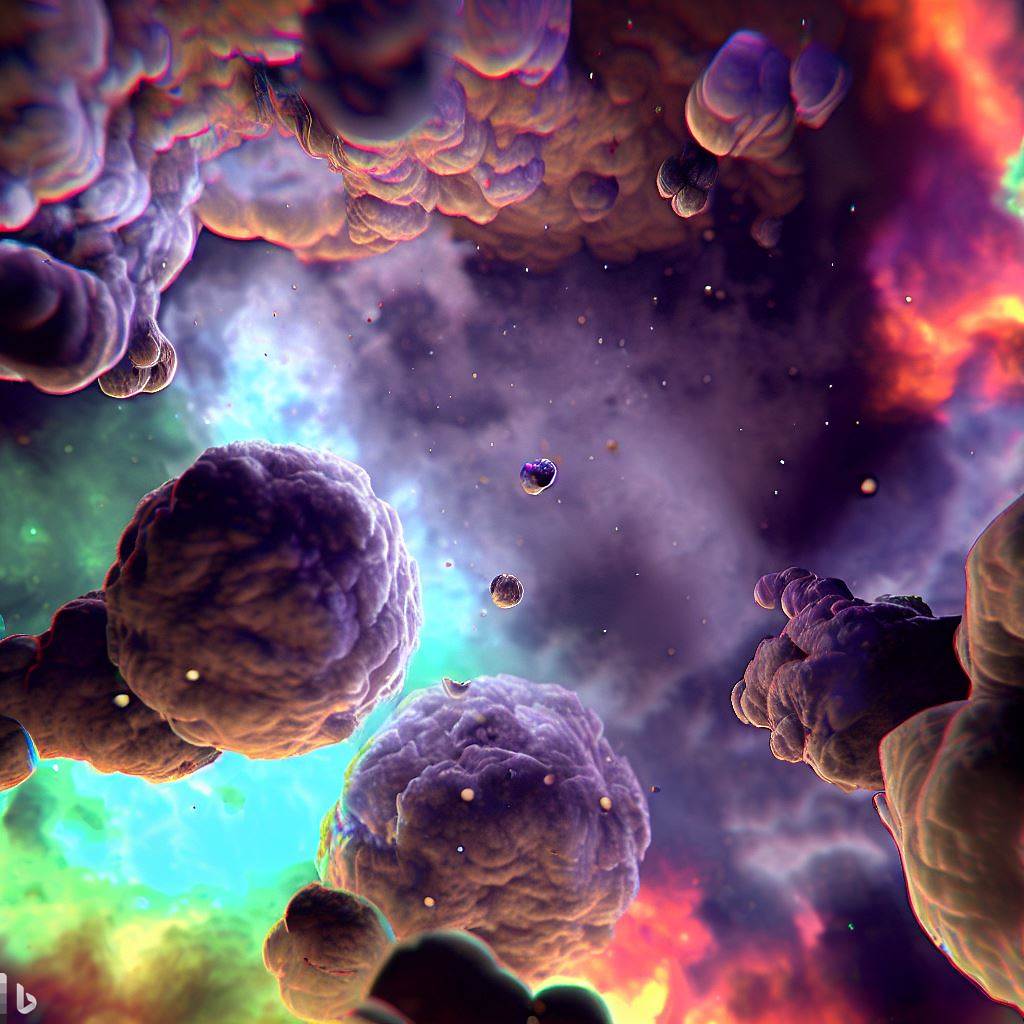
The Big Bang Theory And Religion
The Big Bang Theory has often been subject to religious interpretations and implications. While some adherents of various religions may view the theory as incompatible with their beliefs, others accept it as a means of understanding creation on an even deeper level. To better examine this topic, let’s take a look at how different religious views might interpret the big bang cosmology theory:
| Religion | Beliefs | Religious View |
|---|---|---|
| Islam | Creationism, Quran is divinely inspired | The Big Bang Theory confirms that God created everything from nothing as mentioned in the Quran |
| Christianity | Creationism, Bible is divinely inspired | Some Christians believe that science can bring new insights into biblical accounts of creation; however, others are not convinced by scientific theories such as the Big Bang Theory due to its lack of explicit reference to Divine intervention or design. |
| Hinduism | A variety of belief systems including pantheism, monotheism & polytheism (belief in many gods) | Hindus generally have no problem accepting modern evolutionary models like the Big Bang Theory since they often perceive these theories as consistent with other ancient Hindu scriptures which suggest multiple cycles of cosmic creation and destruction over time. |
From our table we can see that each religion brings its own unique perspective when evaluating the big bang cosmology theory and its potential religious implications. Regardless of one's personal faith tradition, it's undeniable that this powerful model offers an exciting way to explore our universe and gain insight into human existence in relation to something much larger than ourselves.
As research continues regarding this complex phenomenon, more questions will arise about our place within the cosmos. That being said, there is still much yet to be discovered about the mysteries behind the origins of life - leading us further down the path towards uncovering what lies beyond our current understanding of space-time and matter. In doing so, future generations could potentially unlock answers for age-old spiritual inquiries surrounding humanity's relationship with nature and all living things. With this exploration comes promise for continued growth through unlocking greater knowledge about ourselves and the world around us. As we push forward into unknown territories in search for a unified theory of everything, unprecedented discoveries await ahead!
The Future Of Cosmology And The Search For A Theory Of Everything
As fate would have it, the future of cosmology is a tantalizingly mysterious topic. Will we ever be able to unlock the secrets of the universe and uncover its deepest mysteries? That's a question that has plagued humanity since the dawn of time. But now, with our rapidly advancing technology and new methods for exploring the cosmos, we are closer than ever to unlocking some of those secrets.
Cosmologists are constantly pushing the boundaries in their research about what lies beyond our current understanding of cosmic phenomena. They’re looking for answers as to how galaxies form, why dark matter exists, and whether or not there is an overarching theory behind everything in existence—the so-called “Theory of Everything” (TOE). Cosmology researchers around the world pour over data from telescopes and spacecraft in order to gain insight into these questions. By analyzing this data, they can make inferences about different aspects of the universe, such as its age and composition.
These findings have led to intense debates between scientists on topics like string theory and multiverse theories, which could potentially explain many fundamental laws governing our cosmos. Whatever conclusions come out of these debates will surely shape future cosmology research for years to come. The implications are profound: any discovery made could change our view on life itself! It’s both exciting yet frightening at once; luckily we still have plenty more studying to do before reaching any definitive conclusion.
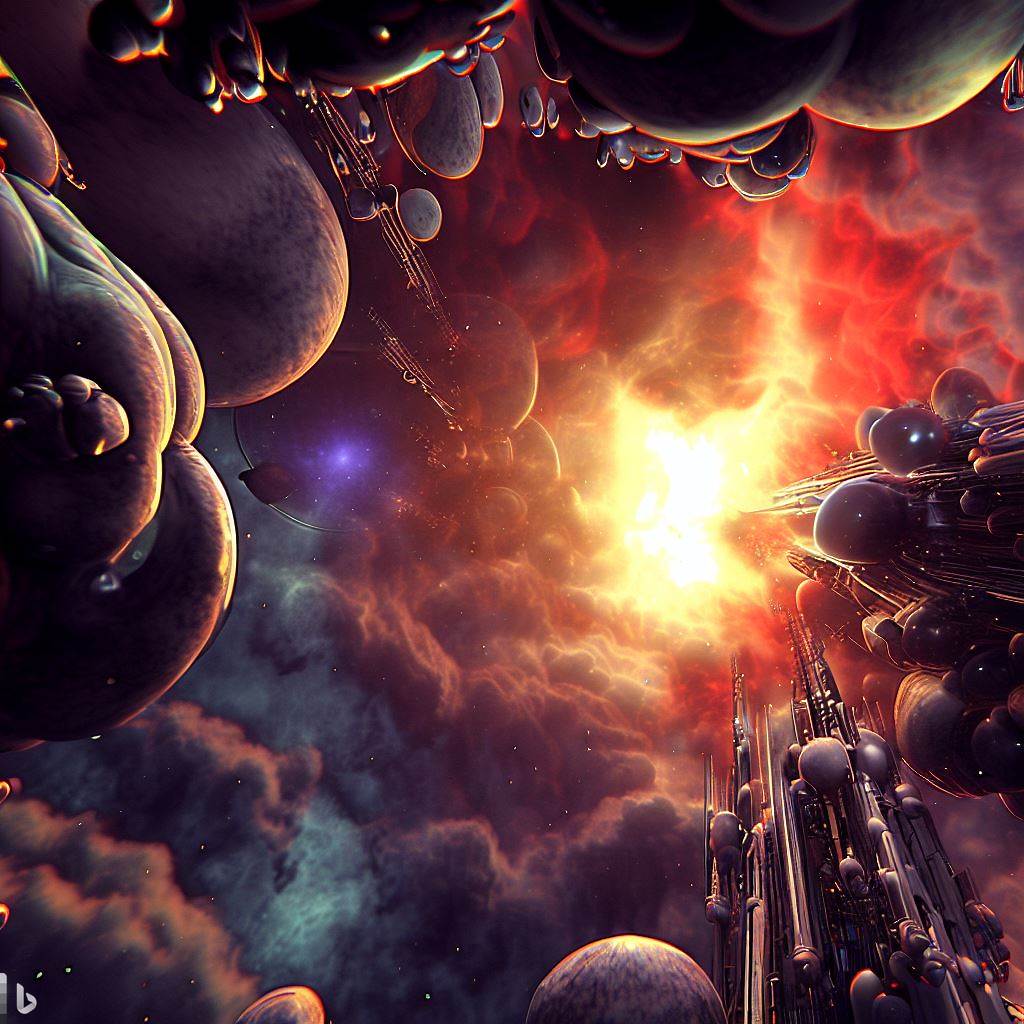
Conclusion
The mysteries of the Big Bang are deep and complex, but their exploration has led to a greater understanding of our universe. As we continue to unravel these secrets, it is clear that the implications for science and philosophy will be profound. In addition, there is much work yet to be done in connecting the dots between cosmology and religion while searching for a unified theory of everything. It is as if looking through a telescope into an unknown starry night sky – each discovery reveals new galaxies of possibilities waiting to be explored.
As researchers, scientists, philosophers and theologians have been doing throughout history, let us use this knowledge to explore with open minds what lies ahead in our cosmic journey. By embracing the power of imagination, we can look towards the future with hope and confidence knowing that no matter how far away the stars may seem, they all belong to one grand universal story - The Mystery Of The Big Bang!
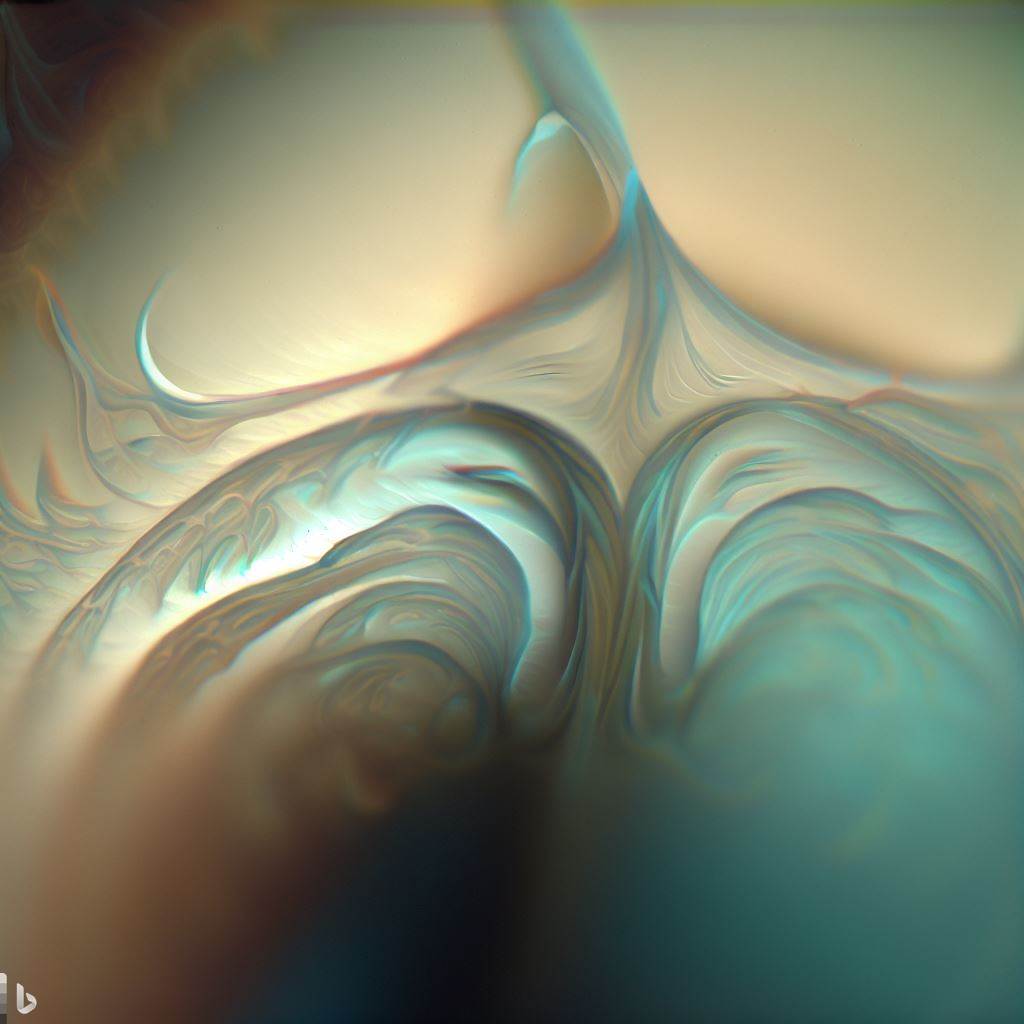
Thanks for your contribution to the STEMsocial community. Feel free to join us on discord to get to know the rest of us!
Please consider delegating to the @stemsocial account (85% of the curation rewards are returned).
You may also include @stemsocial as a beneficiary of the rewards of this post to get a stronger support.
Physicists are increasingly moving away from the idea that the universe began at the Big Bang, which is precisely the notion conveyed throughout your post (which by the way has some repetitive ideas). They now think that the universe as such has always been eternal and that the Big Bang is more like an episode in its history, like "an early moment of time", as Sean Carroll puts it. The inflation of the universe began with the Big Bang, but the universe itself has always been out there.
Also, evolution has nothing to do with cosmology. When creationists conflate these issues they do so out of ignorance or denial of science.